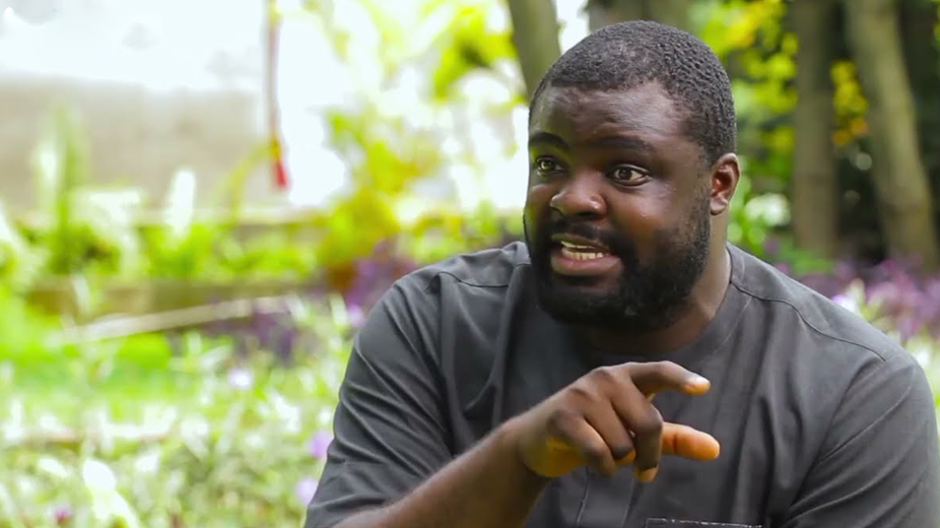Iyinoluwa Aboyeji, co-founder of Flutterwave and Andela, and General Partner at The Fund for Africa’s Future, speaks with Founder Africa about his entrepreneurial journey, angel investing, and his vision for Africa’s startup ecosystem.
With a track record of building successful startups and investing in Africa’s brightest founders, Aboyeji provides deep insights into fundraising, talent acquisition, valuations, and the evolving role of angel investors.
From Founder to Investor: The Journey So Far
Q: How did your entrepreneurial journey begin?
Iyin: My entrepreneurial journey started in 2010 when I co-founded Bookneto.com while studying at the University of Waterloo. That experience led me to build First Fora in 2012/2013 and later Andela in 2014. After that, in 2016, I co-founded Flutterwave, which I left in 2018.
After taking some time off, I returned to the market in 2020 to establish The Fund for Africa’s Future (Future Africa)—a platform that provides capital, coaching, and community for mission-driven founders. That’s been my journey so far.
Early Failures and Lessons Learned
Q: Two of your startups, Flutterwave and Andela, became unicorns. Can you share one of your early failures?
Iyin: Absolutely. My first failure was Bookneto.com. We were a team of eight founders, and our goal was to disrupt Blackboard, the learning management system used in schools. However, we didn’t consider that universities wouldn’t trust a platform built by their own students due to conflict-of-interest concerns.
We pivoted and created a sleek reader platform that allowed students to access past questions, comment, and solve problems together. It gained traction, but then professors sued us for using their intellectual property. That forced us to shut down or pivot again. Ultimately, one of the professors offered us a chance to build a platform for teaching outside the university system.
That was one of my earliest lessons in entrepreneurship: sometimes, the real opportunity isn’t what you originally envisioned.
The Role of Angel Investors in Africa’s Startup Ecosystem
Q: With new fundraising models available, do angel investors still play a significant role in Africa?
Iyin: Absolutely. Angel investors do much more than provide funding—they mentor, connect, and guide early-stage startups through their critical first phase.
Even though there are many venture funds now, startups still need experienced individuals who can help them refine their unit economics, find product-market fit, and prepare for scale. Founders need access to investors with real operational experience—not just capital.
Q: Should angel investors take a more active role in supporting startups?
Iyin: Yes! If angel investors actively add value, they’ll be indispensable to the ecosystem. But if they behave like traditional VCs—investing without engagement—it makes the process more complex than necessary.
Related Read: Want to win investors and secure funding? Read our Startup Pitch Guide for expert insights.
Startup Valuations
Q: Valuations in Africa’s startup ecosystem have risen significantly. Do you think there’s a bubble?
Iyin: It’s a mixed scenario. Some valuations are inflated unnecessarily, but others are justified because of the massive problems these companies are solving.
A part of the valuation surge is driven by rising startup costs, especially talent acquisition. Hiring top developers and operational teams in Africa is expensive, and that reflects in funding rounds.
However, there’s also some bubbly behavior, where companies raise large amounts without clear business fundamentals. The real test will be whether these startups can sustain growth and justify their valuations over time.
Challenges Facing Founders and Investors in Africa
Q: What do you think is the biggest challenge for founders in Africa today?
Iyin: Talent. Finding competent and passionate people is extremely difficult.
Our education system is broken, and there’s no structured corporate ladder for young professionals to gain experience. This makes it hard for startups to find the right people to build with.
Q: And for investors?
Iyin: The biggest challenge is aligning investor expectations with the reality of the African market. Many investors come in expecting Silicon Valley-style returns, but Africa’s ecosystem is different. Understanding local dynamics, consumer behavior, and market cycles is crucial for success.
Future Africa: Investing in Africa’s Hardest Problems
Q: What is Future Africa about, and what is its primary objective?
Iyin: Future Africa is about supporting founders who are solving hard problems in large markets. We do this in three ways:
- Investment: We provide early-stage funding.
- The Future Africa Collective: A community of angel investors who invest alongside us.
- Venture Building: We help startups scale through strategic support.
Q: Are there specific sectors Future Africa prioritizes?
Iyin: We are sector-agnostic, but we pay special attention to:
- Learning & Talent Development
- Digital & Physical Infrastructure
- Mass Media & Consumer Behavior
- Environmental Sustainability
These areas have the potential for high impact and strong economic returns.
Q: Is Future Africa investing across all African countries?
Iyin: Yes, but we prioritize markets with strong economic activity and future potential. We remain flexible and adjust our strategy based on emerging opportunities.
Startup Exits & The Future of Liquidity in Africa
Q: Will Future Africa pursue startup exits?
Iyin: We’ve already had several exits in the past three years. We focus on providing liquidity for investors while maintaining long-term commitment to startups.
Q: Can Africa develop a secondary market for startup shares like in the U.S.?
Iyin: It’s a possibility. Platforms that allow early investors to trade startup shares could unlock liquidity for angel investors. However, Africa’s ecosystem needs more regulatory and financial infrastructure before this becomes widespread.
Related Read: Looking to scale your startup? Explore our 7 Key Steps for Startup Growth to maximize success.
Q: How can the African diaspora contribute to startup success?
Iyin: The diaspora brings talent, networks, and strategic market access. Their industry experience and global networks help African startups penetrate new markets and scale faster.
Rapid-Fire Questions with Iyinoluwa Aboyeji
Q: Favorite podcast recommended for founders?
A: Invest Like the Best and Invest in the Future.
Q: Three key traits you look for in a founder?
A: Mission-driven mindset, leadership, and strong financial acumen.
Q: Book recommendation for founders?
A: Zero to One by Peter Thiel.
Q: Fun fact about you?
A: I once worked as a bouncer in a club!
Are you an early-stage founder? Learn how to craft the perfect pitch and secure funding in our Startup Pitch Guide.




